Efficient Wireless Sensor Network Optimization: Anycast-Based Delay Minimization and Lifetime Maximization
Problem Definition
Problem Description:
One common issue in wireless sensor networks is the trade-off between network lifetime and delay. Traditional sleep-wake scheduling methods have been effective in prolonging the lifetime of these networks but can result in substantial delays as transmitting nodes must wait for their next-hop relay node to wake up. This delay can hinder the efficiency of the network, especially in scenarios where data needs to be transmitted quickly.
The introduction of an Anycast based packet forwarding scheme has shown promise in reducing delays by sending data to the neighboring node that wakes up first among multiple nodes. However, there is a need for a method to optimize the trade-off between delay and network lifetime in wireless sensor networks with obstructions like lakes or mountains.
Therefore, the goal of this project is to develop a solution that minimizes delay and maximizes network lifetime for wireless sensor networks with Anycast packet forwarding. By optimizing the expected packet delay from sensor node to sink using Anycast based packet forwarding scheme, and controlling system parameters of both the sleep-wake scheduling protocol and the anycast packet-forwarding protocol, the proposed method aims to improve network efficiency in practical scenarios with obstacles in the coverage area.
Proposed Work
The project titled "MINIMIZING DELAY AND MAXIMIZING LIFETIME FOR WIRELESS SENSOR NETWORKS WITH ANYCAST" focuses on designing an efficient wireless sensor network that prioritizes minimizing delay and maximizing lifetime. Traditionally, sleep-wake scheduling was used to extend network lifetime, but it resulted in significant delays as transmitting nodes had to wait for relay nodes to wake up. To address this issue, an anycast-based packet forwarding scheme was introduced, where data is sent to the neighboring node that wakes up first. By optimizing the expected packet delay using this scheme, the study was able to improve network efficiency and maximize lifetime. The results showed that controlling system parameters using both sleep-wake scheduling and anycast packet forwarding protocols effectively minimized delay and maximized network lifetime.
This approach was found to be practical even in scenarios where wireless sensor network coverage is obstructed by natural features like lakes or mountains. This research falls under the NS2 Based Thesis | Projects category and the Wireless Research Based Projects subcategory, specifically focusing on Routing Protocols Based Projects and WSN Based Projects. The software used for this project includes NS2.
Application Area for Industry
This project on minimizing delay and maximizing lifetime for wireless sensor networks with anycast has implications across various industrial sectors. Industries heavily reliant on wireless sensor networks, such as manufacturing, agriculture, healthcare, and environmental monitoring, can benefit from the proposed solutions. For example, in manufacturing, where real-time data transmission is crucial for maintaining production efficiency, reducing delays and maximizing network lifetime can optimize operations and prevent costly downtime. In agriculture, sensor networks are used for precision farming, enabling farmers to monitor crop conditions and automate irrigation processes. By improving network efficiency and reducing delays, farmers can make more informed decisions and increase crop yields.
Similarly, in healthcare, wireless sensor networks are utilized for monitoring patient health and managing medical equipment. Minimizing delays in data transmission can ensure timely patient care and improve overall healthcare delivery. Environmental monitoring industries can also benefit from optimized sensor networks, allowing for more accurate and timely data collection for climate studies, pollution monitoring, and disaster management. Overall, the proposed solution in this project can address specific challenges such as network efficiency, data transmission delays, and network lifespan in various industrial domains, leading to increased productivity, cost savings, and improved decision-making processes.
Application Area for Academics
The proposed project on "Minimizing Delay and Maximizing Lifetime for Wireless Sensor Networks with Anycast" offers a valuable opportunity for MTech and PhD students to engage in innovative research methods and simulations within the domain of wireless sensor networks. By addressing the trade-off between network lifetime and delay in traditional sleep-wake scheduling methods, the project introduces an efficient anycast-based packet forwarding scheme to reduce delays and improve network efficiency. Students can utilize this research for their dissertations, theses, or research papers by exploring the optimization of packet delay and system parameters using both sleep-wake scheduling and anycast packet forwarding protocols. This project not only provides a practical solution for scenarios with obstructive features but also presents a scope for further research in enhancing network performance in challenging environments. By delving into NS2 based simulations and data analysis, MTech students and PhD scholars can utilize the code and literature from this project to contribute to the field of wireless sensor networks research.
This study falls under the categories of NS2 Based Thesis | Projects and Wireless Research Based Projects, specifically focusing on Routing Protocols and WSN Based Projects. The potential applications of this research in advancing network efficiency and optimizing system parameters make it a valuable resource for aspiring researchers in the field of wireless sensor networks.
Keywords
wireless sensor networks, network lifetime, delay, sleep-wake scheduling, anycast, packet forwarding scheme, optimization, expected packet delay, system parameters, network efficiency, obstacles, coverage area, NS2, Routing Protocols, WSN, practical scenarios, wireless research, NS2 Based Thesis, Wireless Research Based Projects, Routing Protocols Based Projects, WSN Based Projects.
| Shipping Cost |
|
No reviews found!














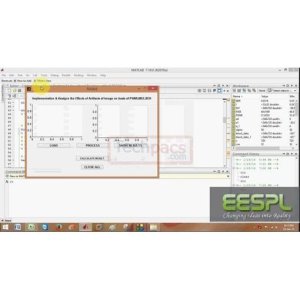
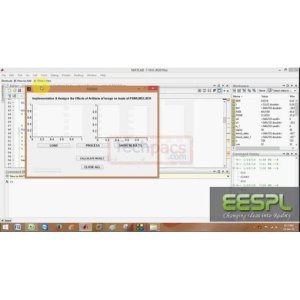
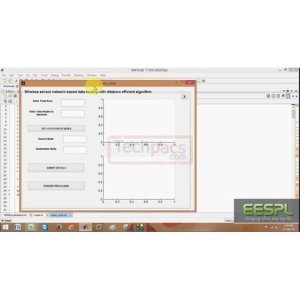
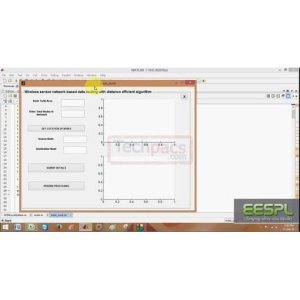
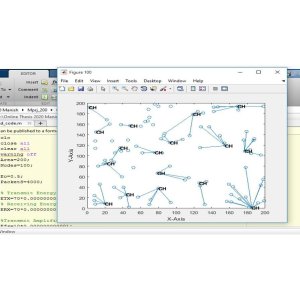


































No comments found for this product. Be the first to comment!